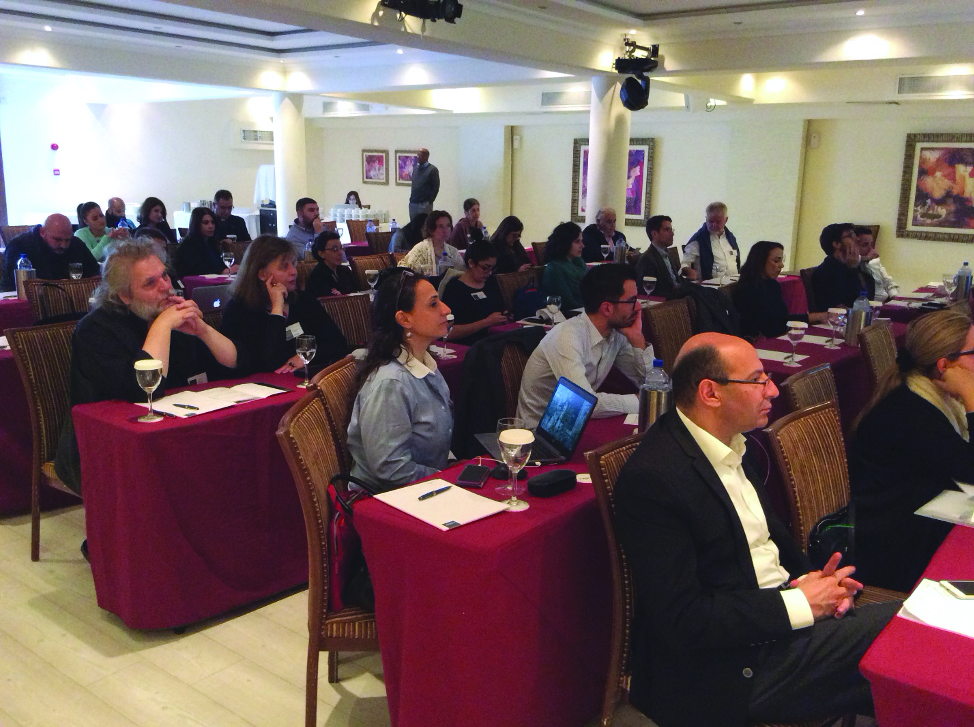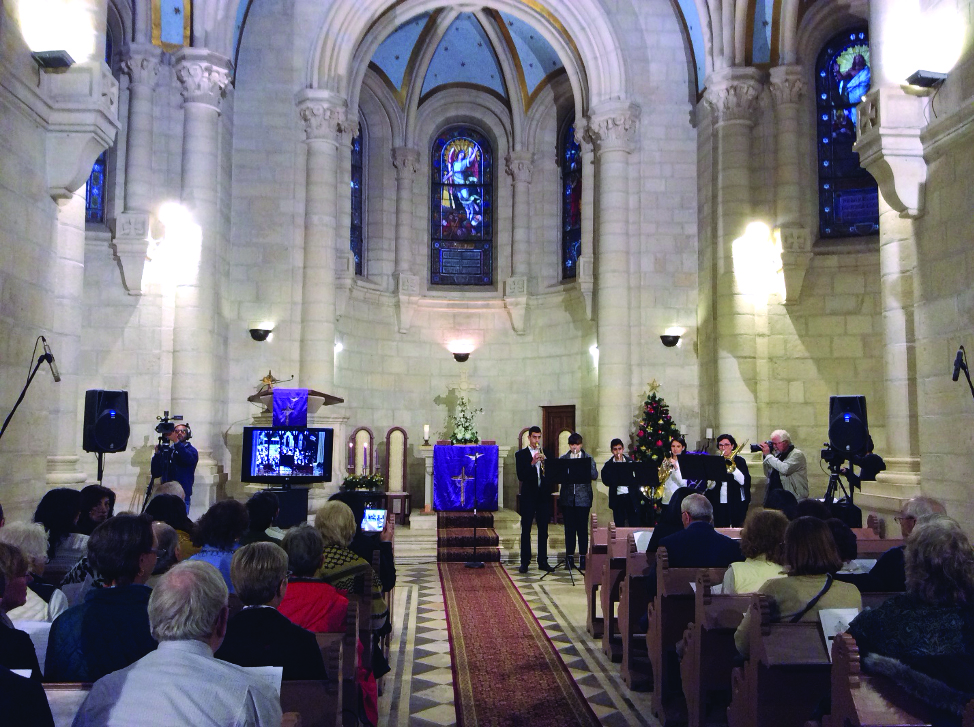Pursuing the Paths of Peace and Reconciliation
On Epiphany Sunday, we posted a reflection on the lectionary text appointed for the day in lieu of a Christmas newsletter to family and friends, given how busy that season is for us in Bethlehem, as you can well imagine!
 Soon after came the deadline for preparing and submitting this Spring Newsletter. As we reflected on what to share with family, friends, and supporters in this letter, it seemed appropriate to answer a question we have often been asked, for we realize that many dear friends like you support and sustain us with their prayers as well as their resources. We know that more than a few extend their support only because they care about mission and trust in the work we do without necessarily knowing more fully its content. That in itself is reason to give thanks to God for you, and to thank you for your partnership and your commitment to mission we carry out together in Christ’s name.
Soon after came the deadline for preparing and submitting this Spring Newsletter. As we reflected on what to share with family, friends, and supporters in this letter, it seemed appropriate to answer a question we have often been asked, for we realize that many dear friends like you support and sustain us with their prayers as well as their resources. We know that more than a few extend their support only because they care about mission and trust in the work we do without necessarily knowing more fully its content. That in itself is reason to give thanks to God for you, and to thank you for your partnership and your commitment to mission we carry out together in Christ’s name.
So, here is a summary of what you might like to know, even if you have not asked!
In a region where majority religions explicitly offer a foundational ideology of “an eye for an eye and a tooth for a tooth,” undergirding attitudes and policies for mutual alienation and confrontation, a unique Christian theological contribution is the command and practice of forgiveness and reconciliation. God’s mission to which the Church and into which we are invited to participate is a ministry of reconciliation and just peacemaking.
As mission co-workers in Israel, Palestine, and Jordan, that is the lens through which we perceive our call: to serve as co-workers with God and with our Christian partners. Jointly appointed and supported by the Common Global Ministries Board of the United Church of Christ and the Christian Church [Disciples of Christ] (CGMB) and World Mission of the Presbyterian Church (U.S.A), we fulfill two main functions:
- Serving as consultant (Victor), and editor (Sara), for the “Religion and State – Middle East” program of the Diyar Consortium and its umbrella institution, Dar al-Kalima University College, based in Bethlehem and reaching out to Jordan, Egypt, Lebanon, Israel, and Palestine (and, as may be feasible, to Syria and Iraq). The Religion and State program focuses on the rights of religious minorities in the region who are often treated as second-class citizens.
- As Regional Liaison in our work for the Presbyterian Church. We are joined in that ministry by our mission co-worker colleague, Douglas Dicks, a veteran expert of the region. Doug’s primary responsibility is facilitating education for peace and justice.
 We look forward in 2020 with thanksgiving and anticipation to some important new developments in the progress of the Religion and State – Middle East program. A new Project Manager will take the lead in working with our team and a search is underway for a communications officer as the fifth phase of the project (for the years 2020, 2021 and 2022) has just been launched with the overall theme “Toward Inclusive Societies in the Middle East,” and a focus for 2020 on quality education for all.
We look forward in 2020 with thanksgiving and anticipation to some important new developments in the progress of the Religion and State – Middle East program. A new Project Manager will take the lead in working with our team and a search is underway for a communications officer as the fifth phase of the project (for the years 2020, 2021 and 2022) has just been launched with the overall theme “Toward Inclusive Societies in the Middle East,” and a focus for 2020 on quality education for all.
Though the future of the Middle East looms progressively uncertain on several levels, our faith in the promises of a just and loving God continues to confirm our conviction that God’s sovereignty rules supreme over the ambiguities of the present and the future. If we but remain faithful in pursuing the paths of peace and reconciliation, our work shall not be in vain. We rejoice in the hope of the Gospel and the company of the multitude of witnesses who share this conviction and devote their lives in faithful obedience to their own calling.
You, who are reading this letter, are those of whom we often think and for whom we pray when we ponder that cloud of witnesses. Hence, our gratitude for you, your support and the fellowship we share in God’s mission.
Rev. Victor Makari serves the Diyar Consortium in Israel/Palestine. His appointment is made possible by your gifts to Disciples Mission Fund, Our Church’s Wider Mission, and your special gifts.
